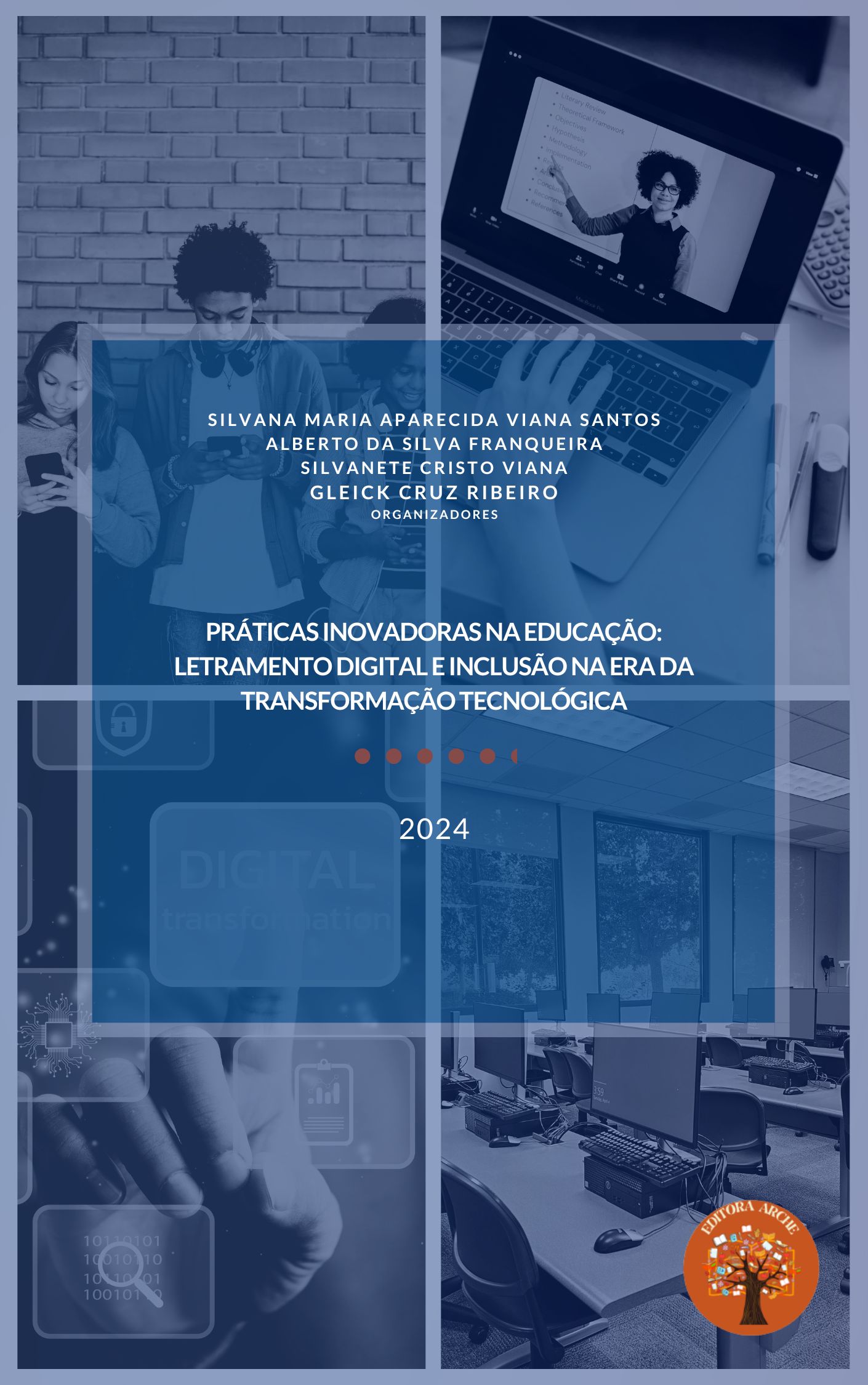INNOVATIVE PRACTICES IN EDUCATION: DIGITAL LITERACY AND INCLUSION IN THE ERA OF TECHNOLOGICAL TRANSFORMATION
Keywords:
Inclusive Assessment. Pedagogical Practices. Special Educational Needs. Continuing Education. Pedagogical Support.Abstract
Education has experienced a revolution driven by technology in recent decades, evolving pedagogical practices, the way learning is done and, above all, the role of the educator in the teaching process. This e-book proposes an in-depth reflection on the innovative practices that have gained prominence, especially in the context of digital literacy and educational inclusion, essential elements to ensure the comprehensive education of students in the digital age.
Digital literacy, a concept that encompasses the skills possible for the critical and creative use of digital technologies, plays a central role in this scenario. Unlike simple access to technological devices and tools, digital literacy involves skills such as the ability to interpret, create and evaluate content in different formats, enabling students to become protagonists of their own learning. The approach presented in this e-book seeks to show how the strategic use of these tools can enrich the educational process, providing more dynamic and meaningful experiences.
In addition, inclusion in digital education is not limited to access to technologies. It also involves adapting teaching to the needs of all students, considering their different realities and learning styles. Promoting an inclusive environment involves, among other things, the use of assistive technologies and active methodologies, which favor the full participation of students with disabilities and other historically marginalized groups in the educational context.
In the context of technological transformation, schools face the challenge of balancing the use of technologies with pedagogical practices that ensure the development of students' socio-emotional and cognitive skills. This e-book explores how the integration of these new tools in the school environment can enhance learning, promoting not only the mastery of technical skills, but also the development of interpersonal skills, essential for coexistence in society.
Finally, this e-book aims not only to discuss innovative practices that have been innovative in the classroom, but also to provoke reflection on the challenges and opportunities that arise with the digital transformation in education. We conclude that the union between technology, digital literacy and inclusion is a promising path for building a more fair, accessible and efficient educational system for future generations.
Happy reading!
Organizers,
Silvana Maria Aparecida Viana Santos
Alberto da Silva Franqueira
Silvanete Cristo Viana
Gleick Cruz Ribeiro
Downloads

Downloads
Published
How to Cite
License
Atribuição CC BY
